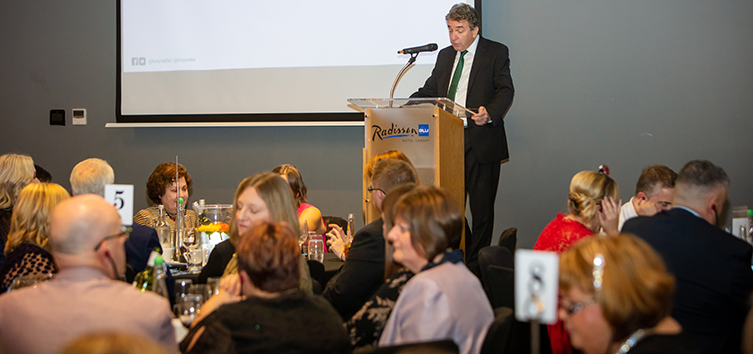Author: jon.oshea

It was a shock to the system when the country went into lockdown in March. Most schools, colleges and other education and training providers stopped or reduced their face-to-face work with learners almost overnight and replaced it with remote and online working. We stopped inspecting at very short notice and we paused our monthly stakeholder email, blog posts, and stopped promoting effective practice and the Annual Report to give stakeholders space to change how they delivered learning.
So what have we been doing since March?
In his blog post back in June, our Chief Inspector Meilyr Rowlands thanked everyone working in education and training for their hard work and commitment during these difficult times. He explained how we’ve been working with Welsh Government and regional consortia to offer advice and guidance for providers on supporting continuity of learning in schools and pupil referral units. This included guidance to make sure that no learner is excluded from learning, as well as advice on how to use technology to continue education in schools and pupil referral units (PRUs). We also contributed to support and guidance for other important areas, including:
- Safeguarding
- Parents
- Welsh medium schools whose pupils live in English speaking homes
- Health and wellbeing
- Blended learning
- A-level delivery
Throughout lockdown, we’ve kept in touch with education and training providers through phone and video calls, and meetings with some of our stakeholder groups, including our headteacher reference group. This means that we’ve been able to start building up a picture of how providers across the nation have responded to the crisis. It’s been particularly important for individual HMI to offer pastoral support to any providers currently identified as causing concern. These providers tell us that they’ve really appreciated having an HMI to chat things through with and to reassure them about how we’re planning to support them as things get back to normal. Our contact with providers has helped us to publish a series of Support to keep Wales learning documents on our website. These offer useful insights into how some schools, pupil referral units and post-16 providers have addressed the challenges they’ve faced in recent months.
What will we be doing from September?
Now that schools and other providers are increasing their operations, we’re beginning to re-establish our voice so that we can:
- Continue to support schools and other education providers by highlighting a range of useful Estyn resources.
- Reassure parents, learners and the public.
- Provide advice to the Welsh Government on how the return to learning is going.
- Continue the conversation about Curriculum for Wales.
During the first part of the autumn term, we’ll continue engaging with schools and other providers by phone or video calls. This will help us to find out more about their work over the past few months and how well learners and staff are settling into new ways of working. We’ll be asking leaders and staff how useful the support they’ve received has been. These conversations will help us to identify further guidance that might be useful for them. We’ll also be asking local authorities how they’ve been helping schools and PRUs to respond to the crisis and how they are using lessons learned to plan for any similar crisis in the future. We’ll share the information we gather from these conversations with Welsh Government to help them to understand the national response to the pandemic crisis.
Later in the term, if the time is right, we’re hoping to start making short face-to-face visits to providers. If all goes well and the situation continues to improve, these visits will increase in length over time. The focus of our conversations with schools and PRUs during these visits will move gradually from the response to COVID-19 to the curriculum. This was always our plan for this academic year, so that we could engage with all maintained schools and PRUs and support them to plan and prepare for the roll-out of Curriculum for Wales. It’s important that we can get back to talking about this once schools and PRUs are ready to do so. In colleges and other post-16 providers, our focus will be on blended learning and learner wellbeing.
During the autumn term, we’ll also continue with our support for schools and providers causing concern. We’ll be in touch with them in September or October to see how they’re getting on and to offer pastoral visits later in the term. These will help us to re-engage with them informally and talk to them about how and when we’ll return to our usual schedule of follow-up visits.
Although most providers won’t see us face-to-face for a while, there are a few exceptions. For instance, we’ll need to visit some independent schools and independent specialist colleges this term for annual monitoring visits and registration visits. For these schools, we will consider individual material change requests and make decisions on whether we need to visit the sites and respond accordingly. During the autumn term, we will evaluate the possibility of restarting core inspections for all providers other than maintained schools and PRUs in the Spring term. If it is not possible to do this, we will continue with our programme of engagement phone calls and visits. There’s also statutory work for us to do this term on joint inspections of education in the justice sector.
So as you can see, just as all education providers are adapting to new ways of working at the moment, so are we. We’re meeting the challenges of virtual meetings, and engaging with colleagues and organisations across the country and taking part in online professional learning activities.
Now is the time for us all to work together. It’s an opportunity to make sure that the futures of our children and young people are secure, despite the disruption that COVID-19 has caused.








